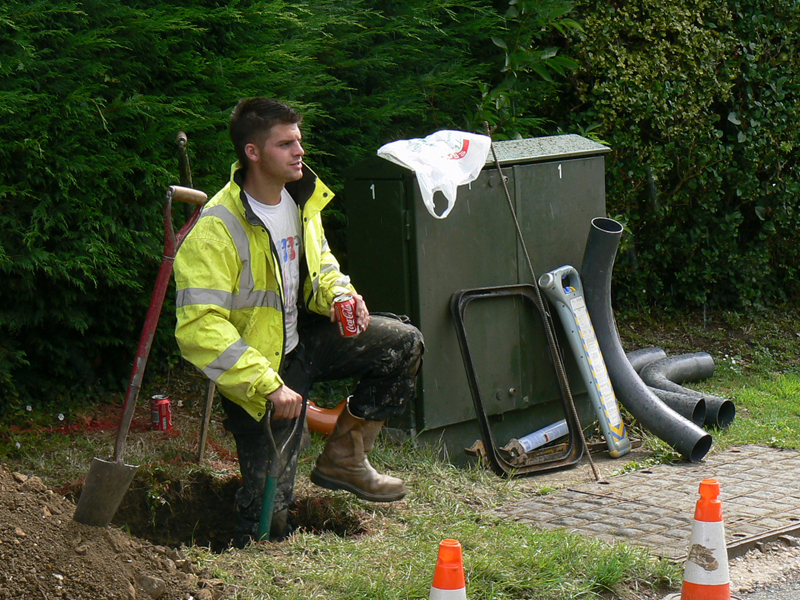Government’s BDUK Plan Faces European Objection

The government’s BDUK scheme for rural broadband is facing more controversy after European objections
The government’s plans to roll out superfast broadband via its BDUK scheme continue to face a potential hiccup, due to the European Commission’s objection to the plans.
The government has set aside up to £830m under the terms of its Broadband Development UK (BDUK) funding to rollout superfast broadband to areas that would not otherwise be covered by BT’s own £2.5bn fibre deployment to two thirds of the UK. BT’s rollout leaves vast swathes of the UK trapped in the broadband slow lane.
European Objections
Only yesterday it was revealed that BT and Fujitsu had signed contracts to supply broadband connections, under the BDUK framework. This is important, as it is the first step that will allow local authorities to begin their tendering processes for superfast broadband provision in rural or semi rural areas.
But it seems that the European Commission is not happy with the way public money has been assigned for the rural fibre deployment. It is reported in the Guardian newspaper for example that European objections centre over the fact that BT is not prepared to give its rivals access to its so called ‘dark fibre’ (i.e. unused fibre connections).
The idea is that rival ISPs could rent this dark fibre and install their own electronic equipment to “light” it – just as they already do on the copper cables that reach from cabinets to homes and offices (the “local loop”). Also Europe is keen on less restricted access for companies to lay their own cables using BT’s ducts and telegraph poles.
BT confirmed to Techweek Europe in a statement that there is an ongoing European objection to the BDUK scheme.
Ongoing Discussions
“Discussions between the UK government and the commission continue on the issue of state aid,” said a BT spokesperson via email. “This is an EU issue as the commission is developing rules that need to work across Europe as well as taking the different conditions in the UK into consideration.”
 “We are working with the UK authorities for an outcome that both incentivises further investment in fibre broadband and delivers vibrant competition in broadband services,” BT added. “We believe there needs to be consistency with the wider regulatory framework which has given the UK the most competitive broadband environment in the world.”
“We are working with the UK authorities for an outcome that both incentivises further investment in fibre broadband and delivers vibrant competition in broadband services,” BT added. “We believe there needs to be consistency with the wider regulatory framework which has given the UK the most competitive broadband environment in the world.”
It is thought that in the UK, access to BT’s ducting and poles is one of the cheapest in Europe. This came after ISPs challenged the initial prices that BT had set, in order to allow rivals to use their infrastructure.
The exact nature of the dispute between the government and the European Commission remains unclear, according to Ian Grant of the Broken Tephone (Br0kenTeleph0n3) blog.
Grant believes that the European Commission (or more precisely its Directorate General for Competition) wants anyone in receipt of taxpayers’ money to be able to support the Digital Agenda targets – which means open and competitive access to dark fibre. He told Techweek Europe that the DCMS (Department for Culture Media and Sport) is trying to broker a compromise.
BDUK Chaos?
In his latest blog posting, Grant revealed that the DCMS meanwhile has paid the accountancy and consulting firm KPMG £2.15m for designing and running a broadband procurement framework that resulted in just two suppliers, BT and Fujitsu, competing for the BDUK funding. A law firm also reportedly got £711,000 for signing off the framework.
Further signs of unrest in the BDUK process include Cumbria County Council’s rejection of bids from BT and Fujitsu to rollout superfast broadband within the county. Other councils have also dismissed the need for BDUK funding, despite government warnings over the matter.
The BDUK scheme also faces question marks because it requires local councils to come up with their own funding at a time when frontline services are being cut.
Socitm, the association for ICT professionals in local public services, warned in January that getting local funding for broadband is a ‘big ask’. And in November 2011, a number of ISPs, including Geo Networks, dramatically quit the BDUK, complaining the framework favours the incumbent (i.e. BT).
Are you fluent in the language of the Internet? Find out with our quiz!